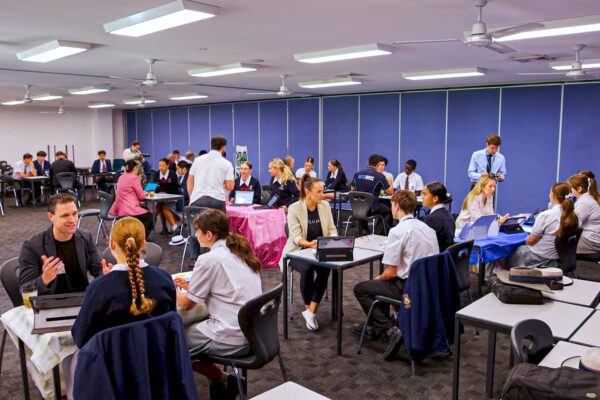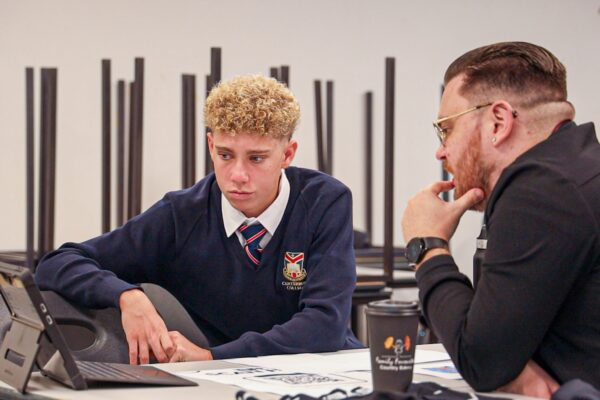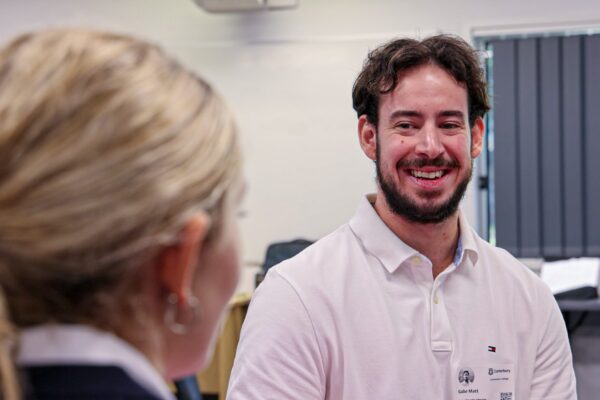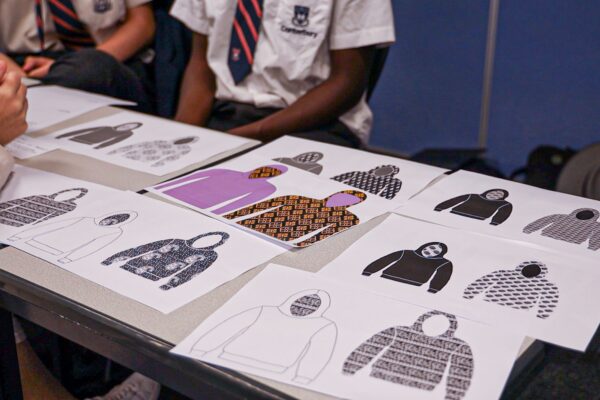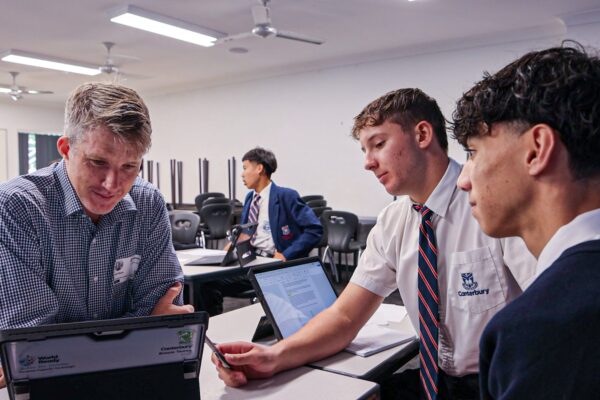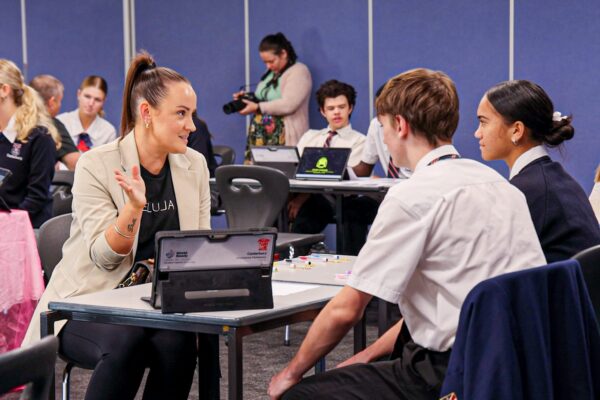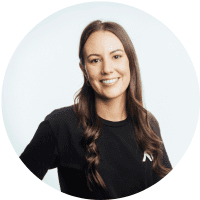Why authentic voices matter.
by Alyssa Burns, Program Manager, Future Anything
Have you ever looked back at your school experience and wished it had been more connected to life in the ‘real world’? That’s certainly a refrain we hear often here at Future Anything.
As educators, we have a vital responsibility to ensure that our teaching reflects the beautiful mosaic of humanity. To make our classrooms places where different voices are heard, alternative perspectives are explored, and all students see themselves reflected in their learning.
One powerful way to achieve this is by embracing authentic voices. You know, those voices that make your lessons pop and your students say “Whoa, I never thought about it like that!” or “Wow, maybe I could do something like that.”
But integrating authentic voices to the classroom requires both intentionality and creativity. In this short blog, I explore some ideas, inspiration and some practical ways to bring authentic voices into your classroom this Term.
What are Authentic Voices?
Picture your classroom as a big potluck dinner. You’ve got all sorts of folks bringing their favourite dishes to share. Some are dishes familiar and reassuring, others new and intriguing.
Well, authentic voices are like those dishes – they bring flavour, spice, and a whole lot of yumminess and interest to the table.
What does that look like in practice? Authentic voices are the stories, experiences, and perspectives of people from all walks of life. We might be talking about experts in their field or people who’ve taken a more roundabout journey, experiencing success and failure and everything in between.
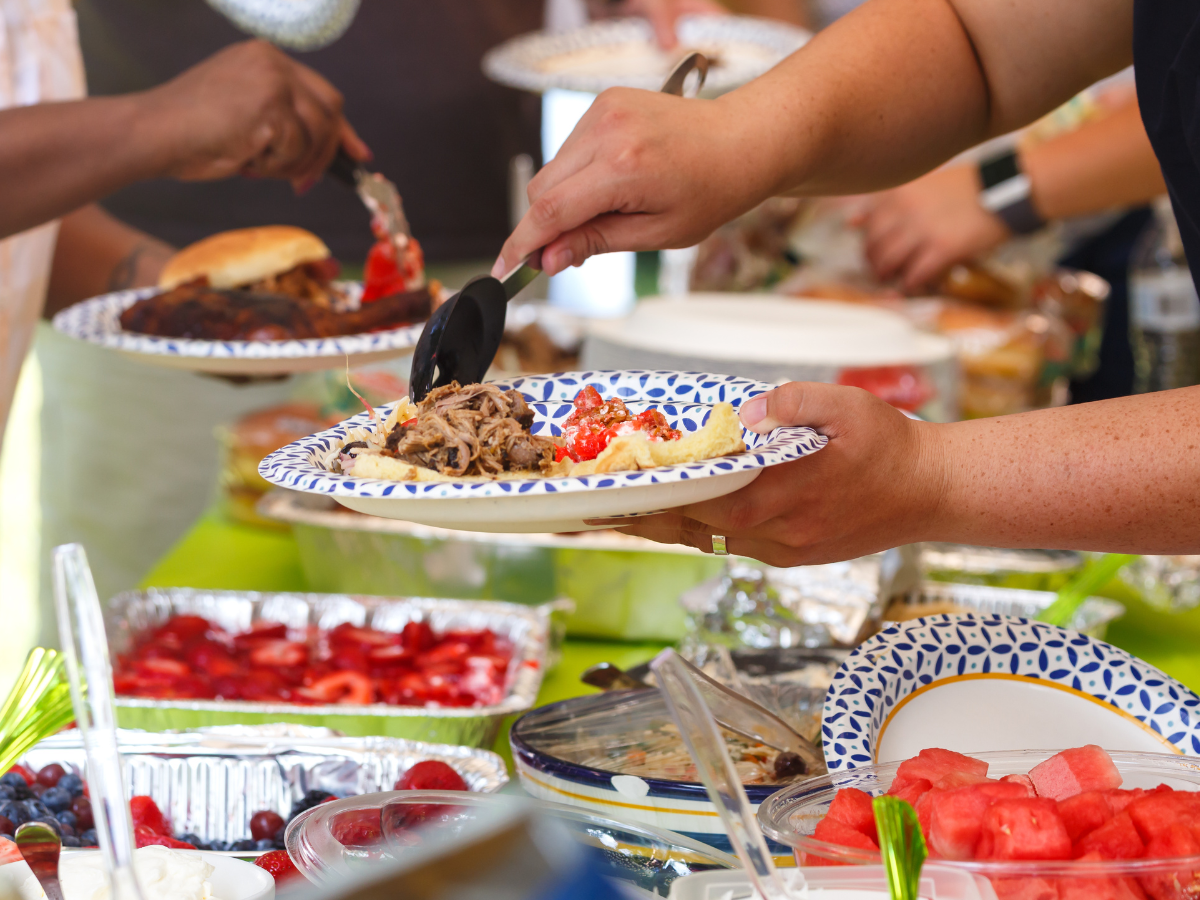
How to Sprinkle Authenticity into Your Teaching
Here at Future Anything we LOVE helping schools incorporate authentic voices into our programs. Every school in our award-winning Activate program is connected to their own ‘Activator’ who provides advice, mentorship and support for their young people and teachers.
While we describe Activators as ‘entrepreneurs in residence’, in reality they are real-world movers, shakers, thinkers and doers from all walks of life. Their role is not only to provide business advice to our budding social entrepreneurs, but also to help to connect learning in the classroom to life outside the school gates. Activators – like all great authentic voices – have experience of life and work in the real world; a good ear for listening; the ability to ask great questions, pivot and solve problems; and an open mind. In short, they are enterprising thinkers.
Activators in Action
Future Anything Activate school Canterbury College (QLD) recently organised a “start up feedback’ session, bringing their Activator Peter Maynard (Founder & CEO, CyberMetrix) and a host of other industry professionals in to hear students describe their nascent social enterprise ideas and support them with next steps.
In a panel discussion with students, Pete and local entrepreneur Alex von Kanel shared their advice around building resilience, emphasising that is it okay to face setbacks and the importance of “failing fast” and learning from those mistakes.
Pete also spoke about the power of bringing consumers and your team along with you and the importance of presentation skills in making connections.
Reflecting on the session, Year 10 student Breeze said “Thank for giving up your time and for supporting us. This subject is different from our other school subjects. It is a practical subject that challenges us to start and manage our own small business. We are in the beginning stages of this journey and are all looking for advice and feedback on our next steps. Our first few weeks were spent researching and discussing the fundamentals of startup culture. We were encouraged to create a business based on a personal problem and area of interest. As teenagers we have many other commitments, so it is important that we are passionate about the problem our business is solving. We were taught to hold our problem tightly but our solution lightly.”
Canterbury’s Director of Student Development Amanda von Kanel said “The students were buzzing after the session and I think they all gained more confidence around their next steps for their enterprise ideas.”
Amanda added that the school will continue the momentum bringing in more external perspectives when they host their Activate showcase in early June, when students will invite industry professionals and the Canterbury Community to see their latest progress with their business ideas.
Bringing real world connections into your classroom.
If you’re looking for other ways to bring ‘real world’ connections into your classroom, consider:
- Spicing up your curriculum with books and articles by authors from different cultures, identities, and backgrounds. Let your students explore worlds beyond their own through the pages of a good book.
- Invite a special guest to share their stories and expertise. Whether it’s a local artist, a scientist, or someone with a unique life experience, guest speakers add that extra zing to your lessons.
- Why not get out of the classroom altogether and go explore the ‘real world’. Is there an excursion your students could experience for that unit? Don’t have the budget?! Is there a virtual alternative?
But what might some of these ideas look like in practice?
I chatted to my brilliant colleagues here at Future Anything to find out some of the most creative ways they’ve seen authentic voices bringing the real world into the classroom.
Our CEO and Founder Nic Dyson told me about the Future Anything Blacktown Big Ideas Challenge 2023 when, in partnership with Blacktown City Council in NSW, students were challenged to create innovative solutions to tackle issues in their local waterways.
Guests from Sydney Water brought in their leak detection dogs, who use their very specific skills to hunt for leaky pipes to save water in a drying climate. Suffice to say, this made students think about issues around sustainability, water waste and management, chemistry, and project management and problem solving in a completely new way. Now, that’s what I call authentic voices!
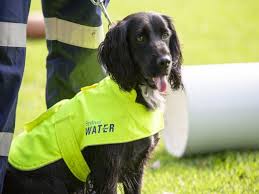
In my own classroom, I love to find interesting ways to incorporate authentic voices. It’s hard to pick a favourite but I’ve enjoyed excursions to Dreamworld for a business class exploring the tourism industry. A visit to the Cross River Rail experience centre followed by a Q&A with Civic Cabinet Chair for Transport Cr Ryan Murphy saw students exploring urbanisation and infrastructure in their local area. Students in a Year 9 HaSS class had the opportunity to tour Queensland’s Parliament House and upon their return to the classroom spoke virtually with a political campaign manager. All these experiences created a real buzz in the classroom and sparked real-world conversations for weeks to come.
Classroom case studies.
We all know that hearing from changemakers in their own words can be so powerful. Check out our series of case studies specifically designed for use in the classroom, in which diverse social entrepreneurs have shared their stories and dug into their ‘why’ and unpacked the innovative solutions they have created:
- Mikhara Ramsing is the Founder of Miks Chai; a social enterprise that sells Chai with the mission of bringing people together to share their stories. View Miks’ Classroom Case Study here.
- Damien King is the Founder & Co-CEO of PUML. PUML is an app that motivates users to stay active by rewarding them with PUML coins when they enter their fitness challenges. View Damien’s Classroom Case Study here.
- Alison Kelly is the CEO & Founder of Mind Blank; a charity that offers training, education and awareness programs to build mental health skills. View Alison’s Classroom Case Study here.
- Anna Robson is the Co-Founder & CEO of Refugee Talent; a social enterprise that uses recruitment technology to assist organisations with filling skills gaps by hiring refugees internationally. View Anna’s Classroom Case Study here.
- Dr James Fielding is the CEO & Managing Director of Audeara, a hearing health technology company that sells high-quality headphones, which personalise sound output according to the needs of the listener. View James’s Classroom Case Study here.
- Dr Nova Evans and Sonia Goodwin are Co-Founders of Sunny Street. The mission of this social enterprise is to provide healthcare for those experiencing homelessness and vulnerability. View Nova & Sonia’s Classroom Case Study here.
- Yasmin Grigaliunas is the Co-Founder and CEO of The World’s Biggest Garage Sale (now known as Circonomy); an organisation that maximises the value of products already in the economy through the principles of reuse, renew, repurpose, recycle and re-commerce. View Yas’s Classroom Case Study here.
- Jim Chapman is the Founder of Nice Coffee Co; a social enterprise that sells coffee beans to corporate businesses so that they can supply quality coffee to their employees who work in their office spaces. View Jim’s Classroom Case Study here.
Leverage YOUR community!
You might be looking at the list above and be thinking ‘well, I just don’t know anyone like this’.
Let’s not forget the powerful networks and intriguing voices that may be hidden within our own school communities. Parents involved in local organisations or businesses. Caregivers with interesting connections or a compelling backstory. Colleagues with a secret talent or a successful side hustle. Community leaders keen to share their insights with the next generation.
If you don’t ask, you’ll never know! There’s a simple email template here that you can use to reach out to your school community – who knows what authentic voices might be available to you right outside your own school gates!
Let’s Tackle Those Challenges
Incorporating authentic voices isn’t always a walk in the park. Sometimes you’ll hit roadblocks, like finding the right resources or navigating tricky topics. But hey, every chef burns a few pancakes now and then, right? Just keep experimenting, collaborating, and learning along the way.
Alright, my fellow educators, it’s time to spice up your classroom stew with some authentic flavours. Let’s create a learning environment where every voice is heard, every perspective is valued, and every student feels like they belong. Together, we can cook up something truly amazing.
Authentic voices serve as guiding stars, illuminating the path to empathy, understanding, and growth. As educators, it is our privilege and responsibility to amplify these voices in our classrooms, creating spaces where every student feels seen, heard, and valued. By embracing authentic voices, we not only enhance learning but also cultivate a more just, inclusive, and compassionate society.
I’d love to hear how you’ve brought authenticity into the classroom for your young people!
About the author: Alyssa Burns
Alyssa Burns is an experienced leader in education, with particular expertise in the development and implementation of Project-Based Learning curriculum and academic mentoring programs.
With more than ten years’ experience in independent primary and secondary schools, Alyssa has a passion for the authentic professional development of educators, and creating successful, engaging and future-focused student programs.
As a Future Anything Program Manager, Alyssa brings her knowledge and experience to support young people, educators, and schools as they engage with our portfolio of programs.
Future Anything’s Activate in-curriculum program and student workshops build confident communicators of all ages, by empowering young people to develop, and then persuasively pitch, innovative social enterprise solutions to the problems they care about.
Find out more about our programs here.



